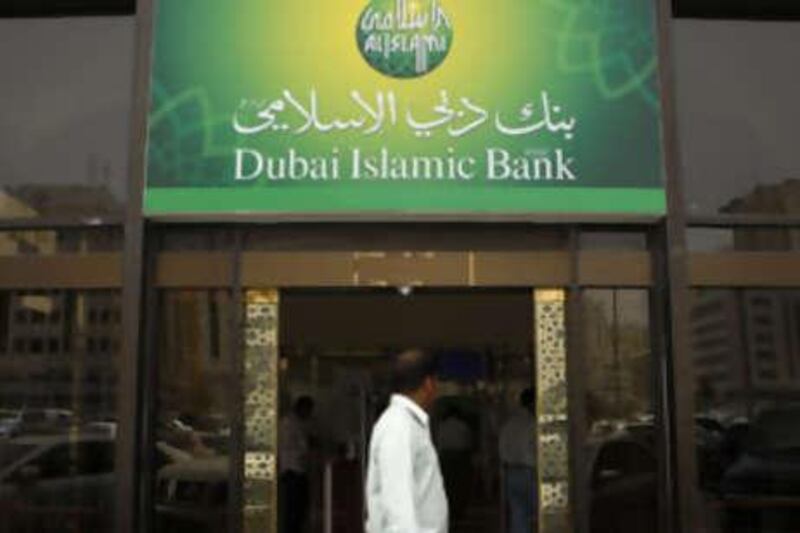Dubai Islamic Bank (DIB), the country's largest Sharia-compliant lender, has assumed ownership of land assets in Dubailand allocated to Plantation Holding, DIB announced yesterday. The move, which DIB said was intended to cover its exposure and recover funds lent to the Dubai-based property developer, forced market regulators to suspend trading in DIB shares briefly until the company confirmed media reports of the move. The owner of Plantation, Arthur Fitzwilliam, is one of six businessmen being held by Dubai police as part of a wider fraud investigation that also extends to DIB. The Dubai Government has acknowledged that it is engaged in a wide-ranging crackdown on corruption in the business world to preserve investor confidence. DIB declined to comment any further about what led it to take the assets. Plantation issued a statement saying the takeover was illegal. "Dubai Islamic Bank has enforced security over Plantation Polo and Equestrian Resort located in Dubailand. The owner of Plantation strenuously disputes that Dubai Islamic Bank had the legal grounds to do so," the company said. Plantation Equestrian and Polo Club is the company's primary asset, which forms part of the US$80 billion (Dh294bn) Dubailand project. Plans had included a luxury hotel, five polo fields, a polo and equestrian academy, and 100 villas. Though initially aiming for completion next year, this target now appears unlikely to be met. The suspension on trading in DIB was lifted after the company issued a statement to the Dubai Financial Market confirming the takeover. While common in more developed markets, suspending shares pending news about companies is still relatively rare in the Gulf. "This will happen more often in the region because investors need to be aware of issues like this," said Amro Diab, the head of institutional sales at EFG Hermes. Once the statement was issued and trading resumed, DIB's share price fell and closed down 3.2 per cent at Dh6.4. "There aren't enough details yet of when the takeover took place nor the total value of funds DIB was seeking to recover, which makes it difficult to predict the effects on the share price," Mr Diab said. Aside from Plantation's owner, the other businessmen detained in the investigation by the Dubai Public Prosecution include Omair Mooraj, the Middle East head of Islamic banking at US investment bank JP Morgan Chase and a former employee of DIB; Charles Ridley, a Bahrain-based British banker, and his business associate Ryan Cornelius; Rifat Usmani and his brother Zia Usmani; and Erin Nil, a Turkish entrepreneur. "If those being held by Dubai police in the DIB investigation have committed financial wrongdoing that impacts the bank's balance sheet, DIB stock will suffer," Faisan Hasan, the head of research at Global Investment House, told Zaywa Dow Jones. DIB and property stocks led the Dubai stock market lower yesterday. The Dubai Financial Market hit a new low for the year, falling 2.45 per cent to end at 4,258.79, more than 2,000 points off its peak in January. The index is now approaching the figure it reached in August last year, just before the bull run on GCC markets started. Emaar Properties was hit by uncertainties in the housing market, losing 3.6 per cent to Dh7.57, while Deyaar fell three per cent to Dh1.64. Tamweel was the biggest loser in the property sector, plummeting 6.2 per cent, just days after it confirmed the arrest of its deputy chief executive in a fraud investigation, which it said would have no impact on operations. Mohammed Ali Yasin, the chief executive of Shuaa Securities, said he believed the markets were approaching a floor at 4,000 for the Abu Dhabi Securities Exchange and 4,200 for the DFM. Investors would be tempted to take advantage of attractive valuations at that level, he said. However, investors who have held on to their portfolios were turning increasingly negative, he added. "Some people have been sticking with the stocks, but now they're getting very uncomfortable with the drop, as it's cutting up their capital and a lot of margins are being called," Mr Yasin said. shamdan@thenational.ae
Dubai Islamic Bank share suspension lifted
Dubai Financial Market has lifted the suspension of Dubai Islamic Bank stocks after land seizure confirmed.

Editor's picks
More from the national





